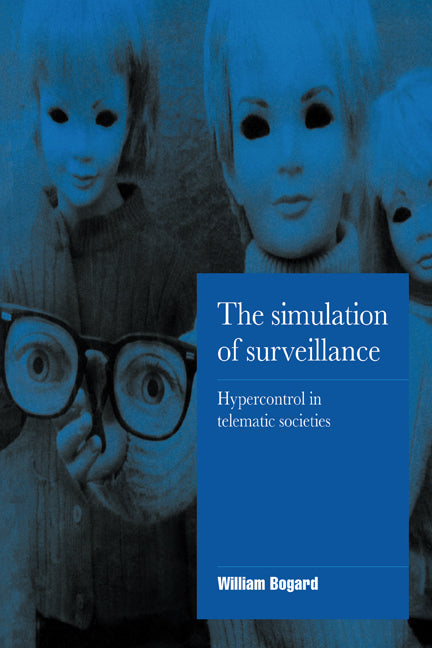Freshly Printed - allow 8 days lead
Couldn't load pickup availability
The Simulation of Surveillance
Hypercontrol in Telematic Societies
Postmodern critique of surveillance and simulation technologies: virtual reality, computer profiling, AI and genetic mapping.
William Bogard (Author)
9780521555616, Cambridge University Press
Paperback, published 18 January 1996
220 pages
22.9 x 15.2 x 1.3 cm, 0.33 kg
Review of the hardback: 'A fascinating exploration of the relation between surveillance (Foucault) and simulation (Baudrillard) ... The simulation of surveillance is sophisticated theoretically, but quite accessible, studded with concrete examples that illustrate the phenomena in question.' Mark Poster, University of California, Irvine
This compelling book, first published in 1996, is an exploration of the imaginary of perceptual control technologies at the beginning of the twenty-first century. William Bogard constructs a 'social science fiction' of how the revolution in simulation technology reconfigures and intensifies the role of surveillance in war, work, sexuality and private life, enabling forms of control which hyper realise our experience of time, space, agency and society itself. His is a critique of the imaginary in which control breaks free of its prior limits, an imaginary of unmediated perception with effects everywhere in fantastic systems for the relentless conversion of objects, events and people into information.
Introduction
1. A social science fiction
2. Surveillance, its simulation, and hypercontrol in virtual systems
3. Social control for the 1990s
4. Sensors, jammers, and the military simulacrum
5. Simulation, surveillance, and cyborg work
6. Privacy and hyper privacy
7. Sex in telematic societies
Epilogue.
Subject Areas: Cultural studies [JFC]


